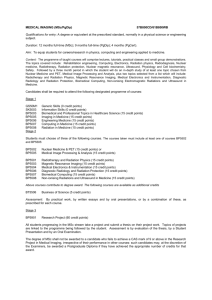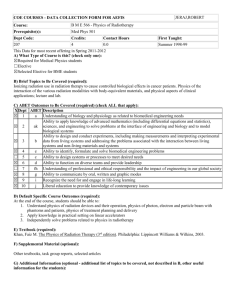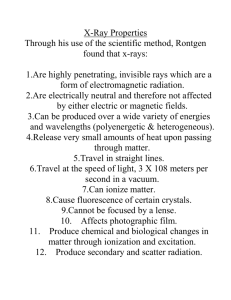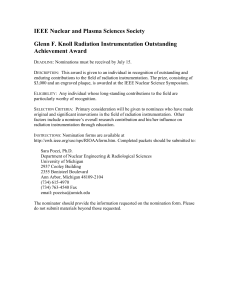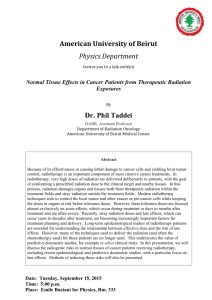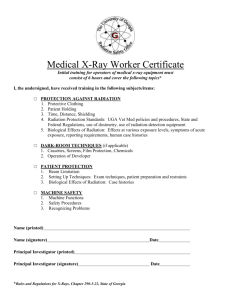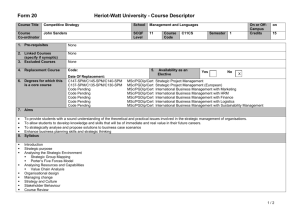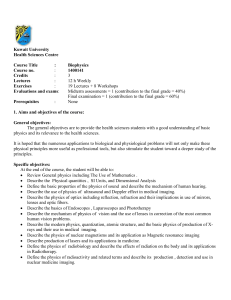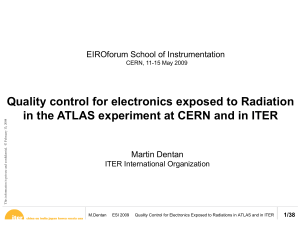Degree of Master of Science in Medical Physics
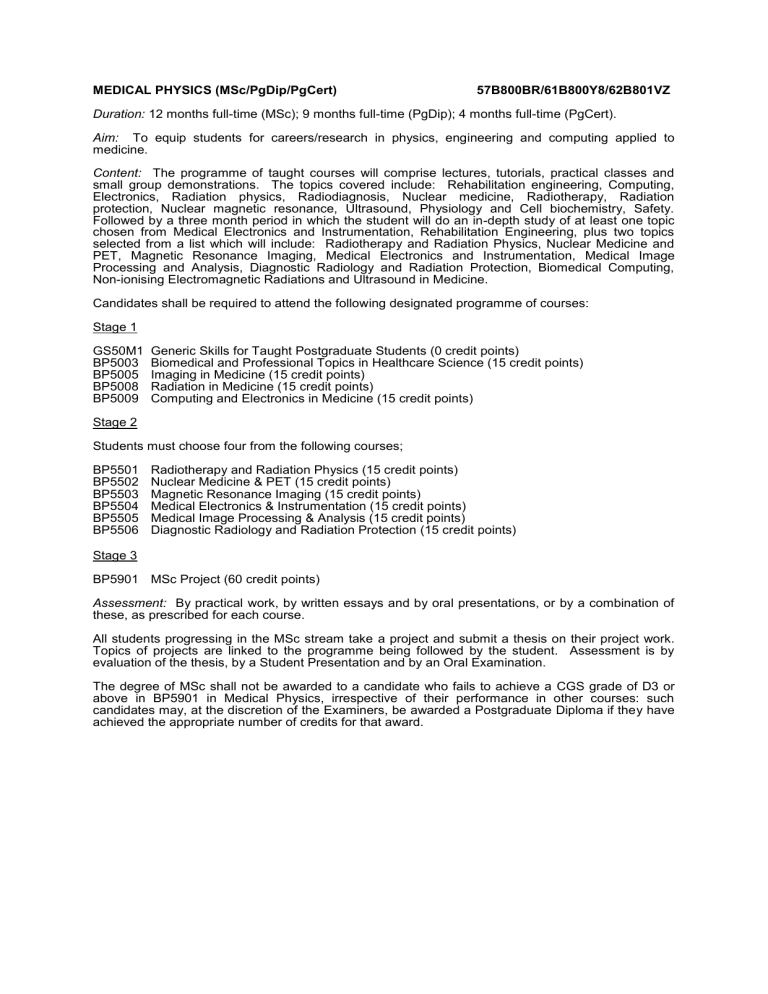
MEDICAL PHYSICS (MSc/PgDip/PgCert) 57B800BR/61B800Y8/62B801VZ
Duration: 12 months full-time (MSc); 9 months full-time (PgDip); 4 months full-time (PgCert).
Aim: To equip students for careers/research in physics, engineering and computing applied to medicine.
Content: The programme of taught courses will comprise lectures, tutorials, practical classes and small group demonstrations. The topics covered include: Rehabilitation engineering, Computing,
Electronics, Radiation physics, Radiodiagnosis, Nuclear medicine, Radiotherapy, Radiation protection, Nuclear magnetic resonance, Ultrasound, Physiology and Cell biochemistry, Safety.
Followed by a three month period in which the student will do an in-depth study of at least one topic chosen from Medical Electronics and Instrumentation, Rehabilitation Engineering, plus two topics selected from a list which will include: Radiotherapy and Radiation Physics, Nuclear Medicine and
PET, Magnetic Resonance Imaging, Medical Electronics and Instrumentation, Medical Image
Processing and Analysis, Diagnostic Radiology and Radiation Protection, Biomedical Computing,
Non-ionising Electromagnetic Radiations and Ultrasound in Medicine.
Candidates shall be required to attend the following designated programme of courses:
Stage 1
GS50M1 Generic Skills for Taught Postgraduate Students (0 credit points)
BP5003 Biomedical and Professional Topics in Healthcare Science (15 credit points)
BP5005 Imaging in Medicine (15 credit points)
BP5008 Radiation in Medicine (15 credit points)
BP5009 Computing and Electronics in Medicine (15 credit points)
Stage 2
Students must choose four from the following courses;
BP5501 Radiotherapy and Radiation Physics (15 credit points)
BP5502 Nuclear Medicine & PET (15 credit points)
BP5503 Magnetic Resonance Imaging (15 credit points)
BP5504 Medical Electronics & Instrumentation (15 credit points)
BP5505 Medical Image Processing & Analysis (15 credit points)
BP5506 Diagnostic Radiology and Radiation Protection (15 credit points)
Stage 3
BP5901 MSc Project (60 credit points)
Assessment: By practical work, by written essays and by oral presentations, or by a combination of these, as prescribed for each course.
All students progressing in the MSc stream take a project and submit a thesis on their project work.
Topics of projects are linked to the programme being followed by the student. Assessment is by evaluation of the thesis, by a Student Presentation and by an Oral Examination.
The degree of MSc shall not be awarded to a candidate who fails to achieve a CGS grade of D3 or above in BP5901 in Medical Physics, irrespective of their performance in other courses: such candidates may, at the discretion of the Examiners, be awarded a Postgraduate Diploma if they have achieved the appropriate number of credits for that award.
